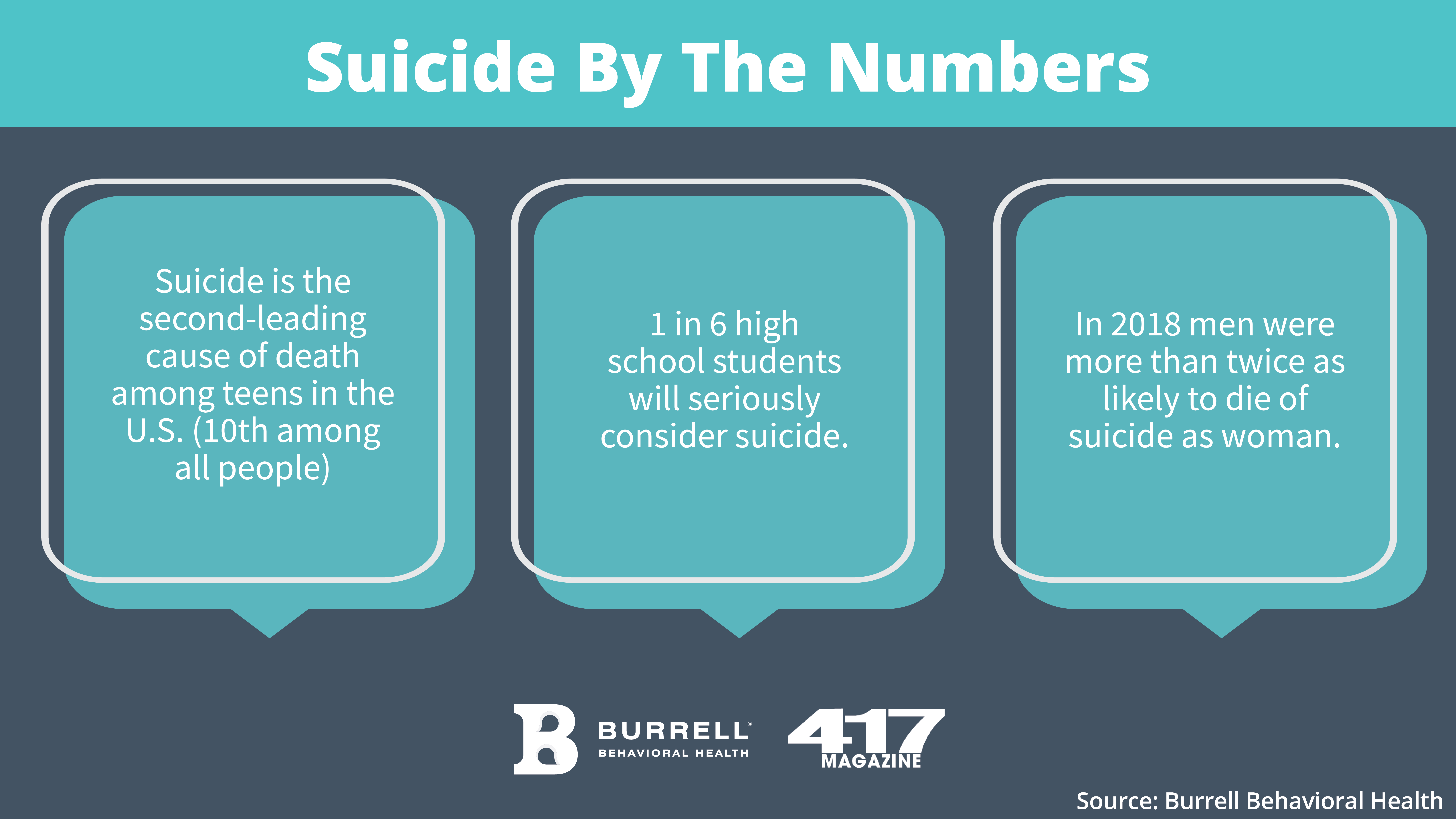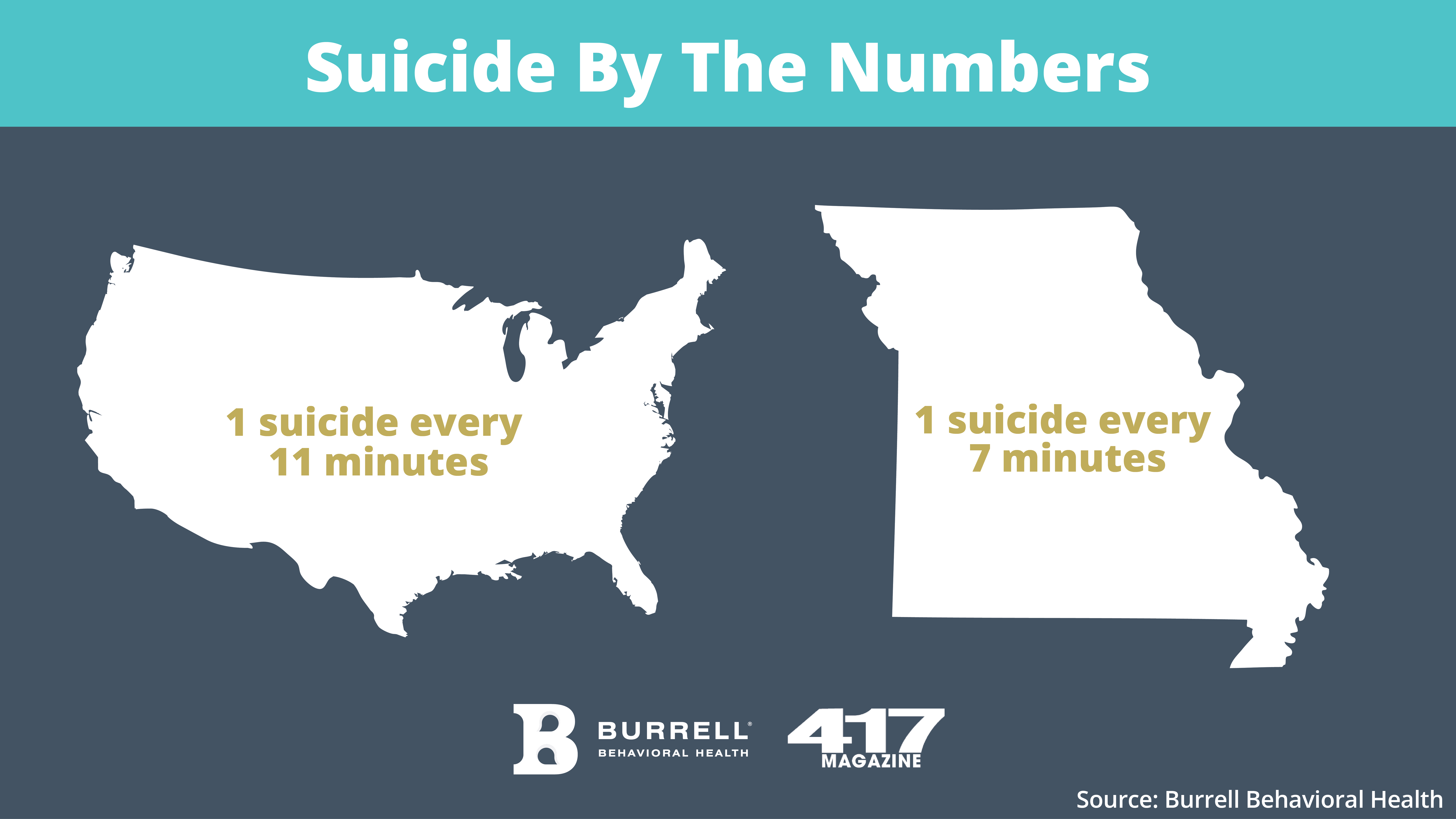Health
How To Talk To Your Family About Suicide
The second session of 417 Magazine and Burrell Behavioral Health’s How To Save a Life series featuring 417-lander Chuck Dow focuses on strategies for talking to your loved one’s about the realities of suicide.
By Burrell Behavioral Health
Sep 25 2020 at 12:32 p.m.
The second session of 417 Magazine and Burrell Behavioral Health’s How To Save A Life series focused on strategies for talking to your loved ones about suicide. Logan Aguirre was joined by 417-lander Chuck Dow, founder of the nonprofit suicide support organization Borrow My Angel. The nonprofit was founded by Dow for his sister, Charity, who lost her lifelong battle with mental illness and suicide attempts when she passed in 2017. Chuck shared Charity’s story and the impact her struggle with depression had on him, providing parents and family members with perspective on how to communicate with loved ones about the uncomfortable topic of suicide.
With the expert perspective of Burrell Behavioral Health’s Dr. Shelly Farnan, the conversation touched on several tactics that can be used to address the topic of taking one’s own life:
First, Do Your Own Research
Take care of yourself by understanding your own emotional intelligence and educate yourself about suicide and mental health.
Be authentic. Urge others not to shield their emotions and put on false happy faces. Model this in a conversational, age-appropriate way for others in your own life.
Be thoughtful about the age and the emotional development level of your children and family members. Use these age-appropriate guidelines when talking about suicide:
• Preschoolers (Ages 3 to 5): Will feel the loss but most won’t have the language yet. Most will not understand what death is or that it is forever.
• Early Elementary School (Ages 6 to 8): Many will understand death is permanent and that the person is not coming back—may worry that they somehow caused the death.
• Later Elementary (Ages 9 to 12): Most will understand death is permanent.
Conversation Basics
Even if mental illness or suicide are not part of our lives, the time to build this vocabulary is now. We all deserve to know how to care for our mental health and how to talk about it. We do better when we know better.
Listen without judgment, interpretation or evaluating. Once our loved ones trust that we are listening for understanding, they’ll be more likely to come to us when they’re hurting or needing advice.
Ask questions and keep conversations going. Don’t put the burden on others to always come to you.
Ask about feelings during the course of the day, not just what someone did during the day.
Normalize the conversation and take away the stigma associated with suicide. Let others know it’s okay not to be okay, and that you—and many other people—want them to be here tomorrow.
Resources
• National Suicide Lifeline: 1-800-273-TALK
• Burrell Crisis Line: 1-800-494-7355
• Burrell connection center/scheduling line: 417-761-5000
• Burrell 24/7 Behavioral Crisis Center: 800 S. Park Ave., Springfield
• Lost and Found Grief Center: (417) 865-9998
• Community Partnership of the Ozarks: (417) 888-2020













